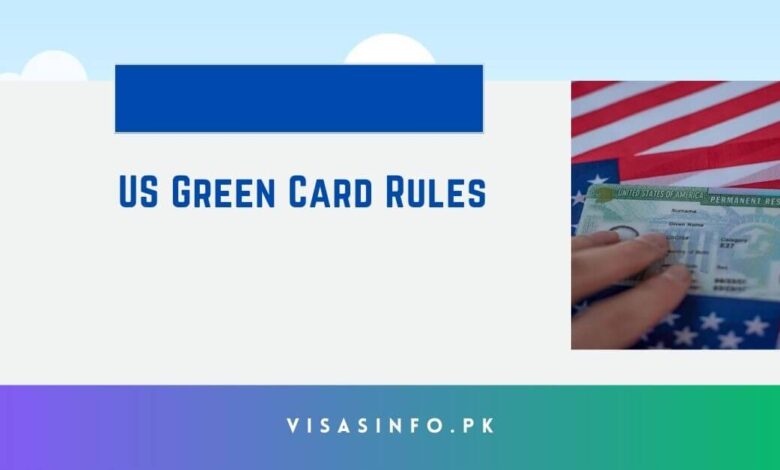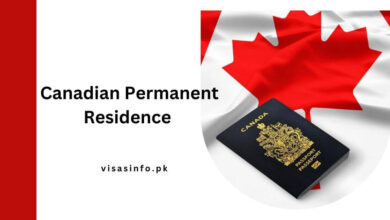US Green Card Rules 2024 – Visit Here

This page will address the following topics: visa interview exemptions for foreign consulates and restrictions on the East Green Card. Thoroughly review the conclusion to absorb all the pertinent information.
US Immigration Policy Shifts
Overturning Green Card regulations and extending interview waiver eligibility
In recent years, the United States has implemented numerous significant changes to its immigration laws, with a particular emphasis on the visa interview processes and Green Card regulations. The most recent modifications are the focus of this investigation, which emphasizes the resend of severe Green Card regulations and the expansion of interview waiver eligibility for individuals requesting US visas from foreign consulates. The nuances of these modifications are examined in detail.
Reversal of Green Card Rules
Historical Context
The modifications to Green Card requirements can be traced back to the administration of former President Donald Trump. During his tenure, numerous stringent regulations were implemented, which had a substantial impact on immigrants who aspired to obtain permanent status in the United States. One such measure was Form I-944, which is also known as the Declaration of Self-Sufficiency.
The Biden Administration’s Reversal
The Biden Administration’s termination of the contentious “Public Charge Rule” during the Trump era represents a substantial departure from the previous administration’s policy. This regulation exacerbated the challenges faced by immigrants in obtaining legal status if they utilized public services such as food stamps, housing vouchers, and medical assistance.
The repeal of this provision signifies a significant shift in immigration law, as it prioritizes a more compassionate approach while maintaining a balance that discourages undocumented immigration.
Impact on Processing Time
One of the anticipated immediate consequences of the Public Charge Rule’s repeal is a decrease in the time required to process green card petitions. The extensive documentation mandated by form I-944 has frequently resulted in a twofold increase in the processing times of applications for officers. It is expected that the elimination of this provision will significantly reduce the overall processing time for green cards by expediting the verification and adjudication process.
USCIS Operational Changes
The United States Citizenship and Immigration Services (USCIS) has specified specific modifications to its operational protocols in response to the Public Charge Rule’s revocation. Form I-944 will no longer be required for new applications, a departure from the previous stringent documentation requirements.
The Public Charge Rule will not be followed in the decision-making process regarding pending applications, and the outcomes will not be explicitly influenced by data from previously filed forms.
Check Also: Green Cards Available for Undocumented Immigrants
Addressing Denied Applications
Applicants who were previously denied under the Public Charge Rule and who received requests for evidence (RF) regarding this case are currently granted a reprieve. If an RF has explicitly requested documents regarding the Public Charge Rule, which has since been annulled, individuals are not obligated to provide this information. Nevertheless, applicants must still respond appropriately if the RF pertains to other components.
Benefits of US Green Card Rules
- Permanent Residency: Individuals who possess a Green Card are permitted to reside and labor in the United States indefinitely. They are legally entitled to establish their enterprise, change employers, and reside in any state.
- Path to Citizenship: Permanent residents are eligible to petition for U.S. citizenship after holding a Green Card for a minimum of five years (three years if married to a U.S. citizen). This status grants full voting rights and the ability to run for public office.
- Work Authorization: Green Card holders are permitted to work in any occupation or industry without the necessity of obtaining a special work permit. Certain positions, notably those that are federal in nature, are exclusively available to U.S. citizens and permanent residents.
- Social Benefits: After a specified period, Green Card holders are eligible for specific government benefits, such as Social Security, Medicare, and other welfare programs.
- Family Sponsorship: Green Card holders can sponsor specific family members, including spouses, children, and occasionally parents, for their own Green Cards. This enables them to become permanent residents of the United States.
- Travel Flexibility: Green Card holders are permitted to travel abroad and return to the United States without a visa, provided that they do not remain outside the country for more than one year without a re-entry permit in place.
- Education: Green Card holders are eligible for in-state tuition at public universities and can apply for federal student aid, which makes higher education more affordable.
- Deportation Protection: Green Card holders are afforded greater protection from deportation than non-immigrants; however, they may still be deported for severe offenses.
- Community Involvement: Green Card holders have the opportunity to participate in civic activities, such as serving as a juror, and make a more substantial contribution to their communities.
USCIS Guidelines for Denied Applications
USCIS has committed to providing additional information and guidelines for applications that are denied shortly. This would provide individuals whose applications were adversely affected by the Public Charge Rule with a means to resubmit their cases for consideration.
Expansion of Interview Waiver Eligibility
Traditional interview process
Historically, individuals who applied for a US visa from a consulate abroad were required to submit biometrics and attend an in-person visa interview. However, for visa renewals, the necessity for in-person interviews was waived by several criteria, which provided eligible candidates with some flexibility.
Policy Rationale
Secretary of State Antony Blinken initiated this policy extension after consulting with the Department of Homeland Security. It achieves multiple objectives by temporarily exempting consular officials from the requirement for an in-person interview. The objective of the strategy is to reduce the number of applicants who are required to visit a counselor section while simultaneously proceeding with the processing of certain non-immigrant visa applications.
COVID-19 Considerations
The current COVID-19 outbreak underscores the urgency of expanding eligibility for interview waivers. The regulation is designed to mitigate the risk of COVID-19 transmission between counselor personnel and candidates by limiting the number of in-person interviews. This illustrates the government’s commitment to maintaining a balance between the necessity of ongoing visa processing and public health concerns.
Traveler Awareness
As part of the DOS statement, travelers are encouraged to consult the website of the nearest US Embassy or consulate for a comprehensive overview of the services that are currently available, the qualifications for interview waivers, and the process for applying for a visa without the need to attend an in-person interview.
Conclusion
In conclusion, the revocation of the Public Charge Rule and the extension of the eligibility for interview waivers are two recent developments in US immigration policy that indicate a significant departure from previous restrictive measures. The immigration system will be more efficient and adaptable as a result of these modifications, which will be beneficial to individuals who are traversing the difficult process of becoming permanent residents of the United States.
These developments offer a glimmer of optimism for a more humane and effective approach to immigration procedures, as the nation grapples with the intricacies of immigration.
Frequently Asked Questions:
-
What is the 6-month rule for US green cards?
We presume to break the continuity of such residence if there is an absence of more than 6 months (more than 180 days) but less than 1 year (less than 365 days) during the period for which continuous residence is required (also called “the statutory period”).
-
What are the disadvantages of a green card?
What are the disadvantages of having a green card compared to being an American citizen? A green card requires you to spend time every year in the US, or you can lose it. With a green card, you cannot vote. If you want to sponsor family members, having a green card puts you in a much lower and slower category.
-
What is the age limit for a U.S. green card?
Individuals who are unmarried, aged 21 or above, and possess at least one parent who is a U.S. citizen are F2A refers to the spouses and unmarried children of a green card holder, provided that the children are under the age of 21. the children are younger than age 21.” F2B: “Unmarried children aged 21 or older of a green card holder are eligible.”



